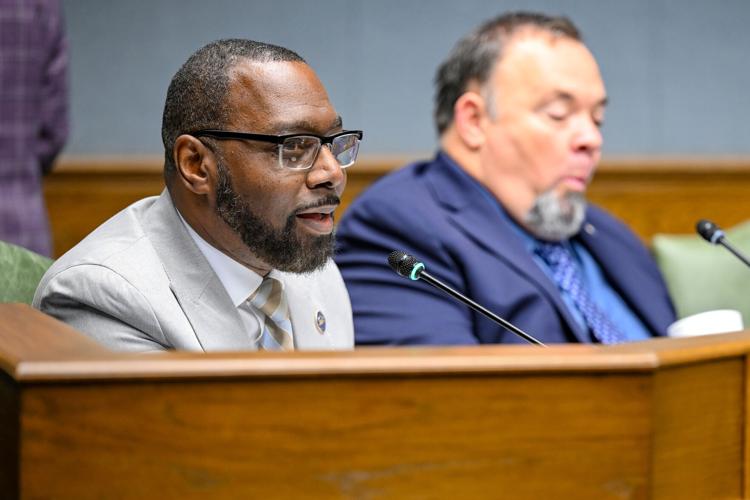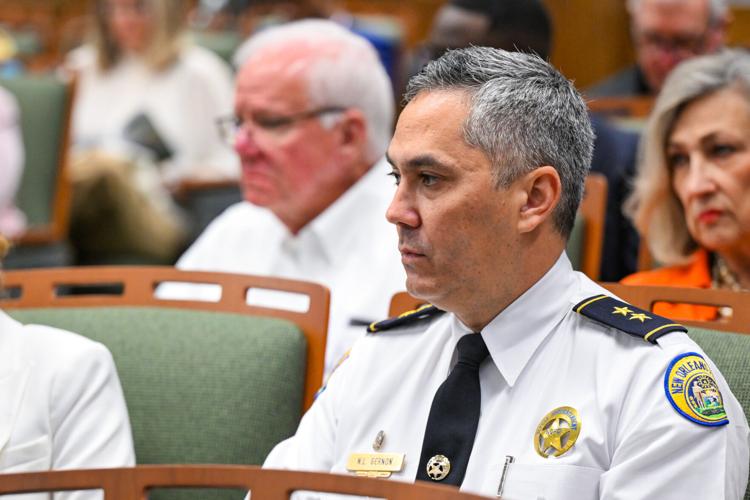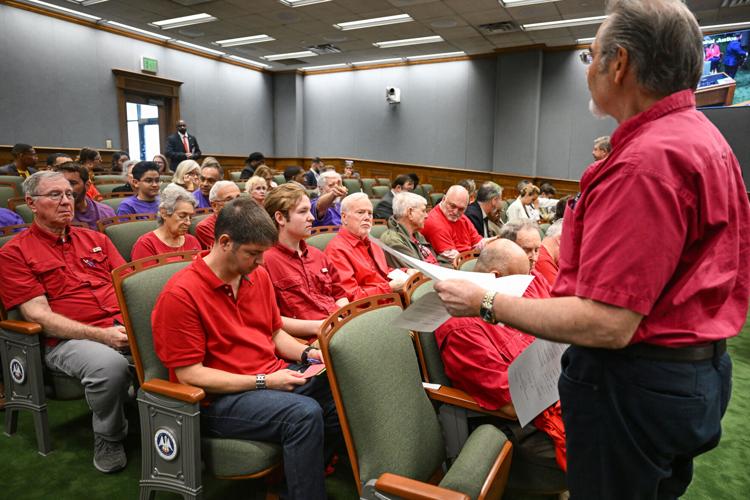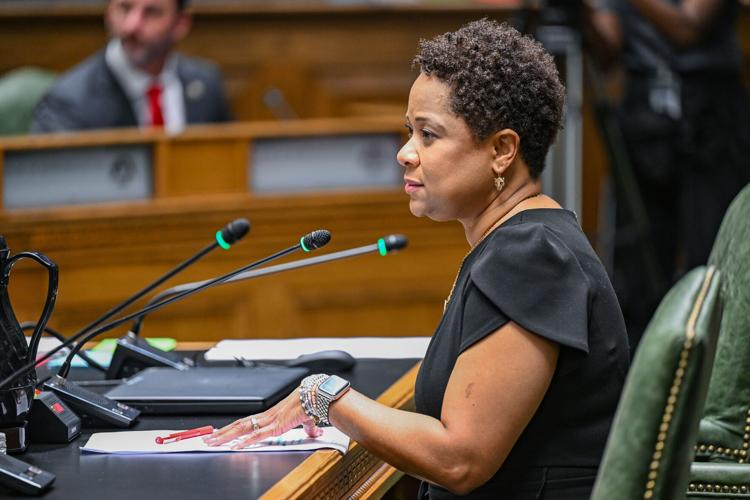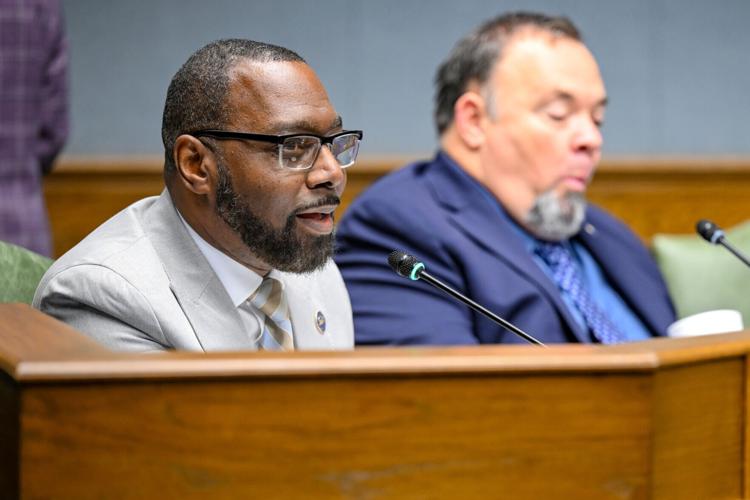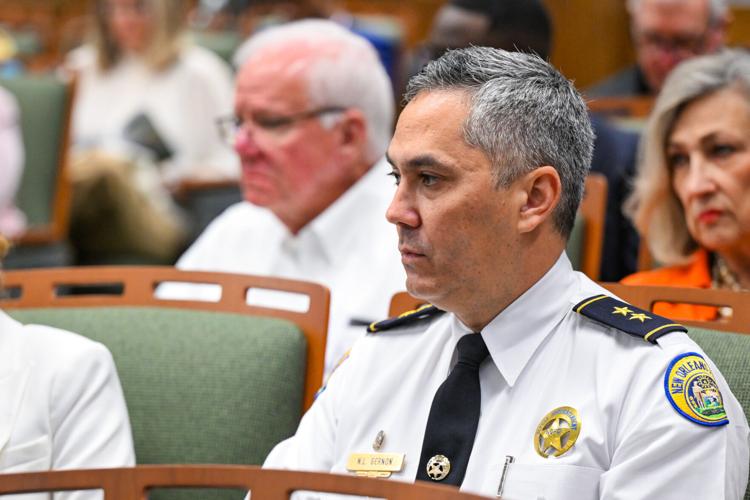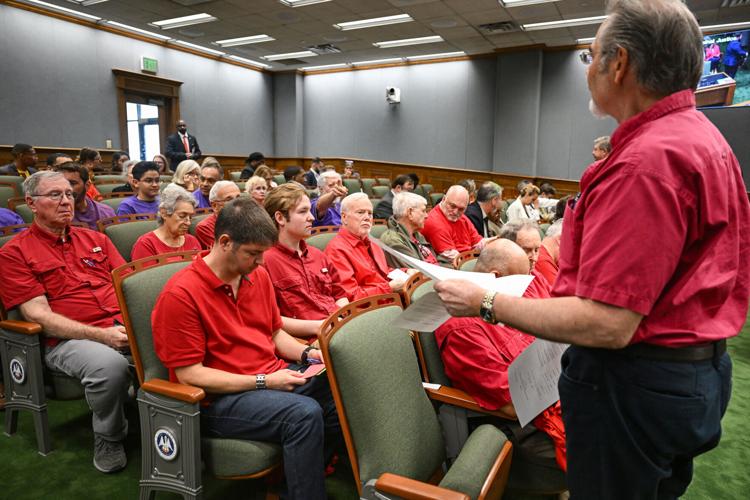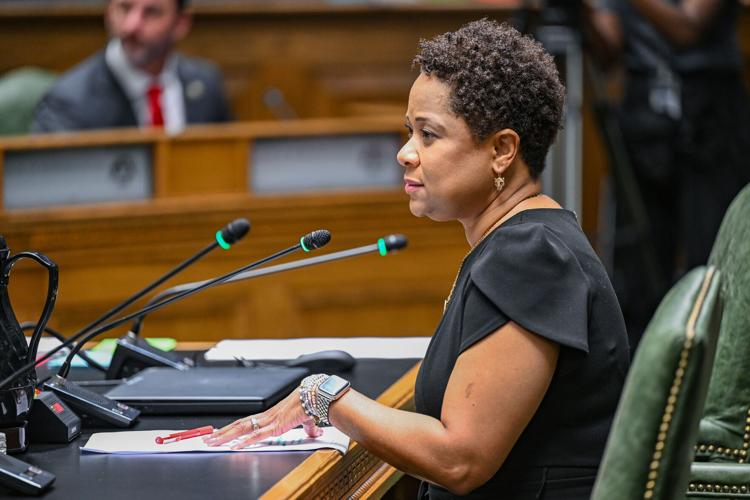The fresh wounds of New Orleans gun violence played over video in a Louisiana House chamber on Wednesday, visible in the anguished faces of the parents of Jezreel Poleate, who was slain late Sunday at age 24 outside a Warehouse District nightclub while 11 others were shot.
The mass shooting was just the latest violent act to roil downtown New Orleans, and it served as an emotional backdrop as local officials pressed a House committee to make the French Quarter and much of downtown a firearm-free zone.
But the committee showed little enthusiasm for the idea, or any geographic limits on a new law allowing people 18 or older to carry concealed firearms in Louisiana without a permit, as gun rights advocates argued against them.
The Committee on Administration of Criminal Justice rejected a bill from Rep. Aimee Freeman, D-New Orleans, to add day care facilities, nursing homes, and developmental and early learning centers to the school zones where state law now makes it a felony to carry a firearm. The vote was 8-5.
Another bill, authored by Rep. Alonzo Knox, D-New Orleans, would have carved out swaths of downtown New Orleans, including the French Quarter, Downtown Development District and Ernest N. Morial Convention Center, as a “major entertainment district” where firearms would be barred.
Knox amended his bill to allow gun owners with concealed carry permits to keep weapons hidden in the proposed zones. But after a tense debate, Knox requested that his bill be deferred, saying he hoped to refine it.
The two bills came in response to the passage of a law in February making Louisiana the 28th state to allow permitless concealed carry. The new law emerged from Gov. Jeff Landry’s special session on crime and takes effect in July.

NOPD Deputy Chief Nicholas Gernon sits in the gallery of the Administration of Criminal Justice house committee meeting on April 17, 2024.
Mayor LaToya Cantrell, New Orleans Police Department Superintendent Anne Kirkpatrick and City Council President Helena Moreno have all described the new rule as a danger to police, arguing it limits officers’ ability to stop dangerous people suspected of carrying guns illegally.
Kirkpatrick, who took office last fall, said this week that she’d prefer to make the whole city a gun-free zone but would settle for defined “hospitality” zones.
Knox on Wednesday highlighted two recent high-profile killings in the city that resulted from gunplay: Sunday’s melee just before midnight in front of Republic NOLA on South Peters Street, and the killing this month of popular security guard Darriel King outside of Wit’s Inn, a bar on North Carrollton Avenue in Mid-City.
Testifying in favor of Knox’s bill were Moreno, NOPD Deputy Chief Nicholas Gernon and Melvin Howard, a deputy chief with the Orleans Parish Sheriff’s Office. Gernon pointed to more than 100 guns that NOPD officers seized off Mardi Gras parade routes this year and said the new law imperils dramatic gains law enforcement has made in reducing violent crime.
“Failing to enact some carve-out in this regard will really... increase harm to both our officers and citizens,” Gernon said.
Glade Bilby, president of French Quarter Citizens, argued that “allowing people to carry a weapon without a permit into such a target-rich area as the French Quarter really doesn’t help us.”
A majority of the GOP-led committee, however, seemed unpersuaded.
Rep. Bryan Fontenot, R-Thibodaux, questioned why Kirkpatrick wasn’t there herself to testify on Wednesday.
“Why is the superintendent not here to answer these questions?” Fontenot asked. “I’m not quite sure that’s good enough for one of the most populous cities.”
The NOPD did not immediately respond to questions about Kirkpatrick’s whereabouts.
Gun rights groups, fresh off sweeping wins from the special session, came out in force against both bills.
Kelby Seanor, state director of the National Rifle Association, argued that new firearm-free zones would create arbitrary boundaries and only add confusion for lawful gun owners who could face potential felonies.
“This is going to do nothing but restrict law-abiding citizens’ ability to defend themselves,” Seanor said.
Supporters, however, portrayed Freeman’s bill to add firearm-free zones around nursing homes, day care centers and early learning centers as a common-sense extension of the current zones that extend 1,000 feet around schools.
Gun rights groups raised a variety of concerns, however. Some argued that those zones attract, rather than deter, crime by pointing bad actors to areas with unarmed targets.
“Gun-free zones are like waving a red flag in front of a bull,” said Chris Patron, of Firearm Professionals of Louisiana.
Dan Zelenka, president of the Louisiana Shooting Association, argued that new zones would only add to the frequency of gun owners handling their weapons, raising the danger of accidental gunfire.
“There’s no reason that a person should have to remove their firearm and leave it in their car to go into these types of facilities,” Zelenka said, noting he was forced to leave his gun in the car to enter the Capitol.
“Rep. Freeman basically wants to make taking your child to day care or visiting your mother in a nursing home while carrying your lawfully owned firearm a felony,” he said.
Knox said he aims to come up with a palatable measure in coordination with the author of a still-pending bill in the Senate. The committee agreed to allow Knox to defer his bill until then.

